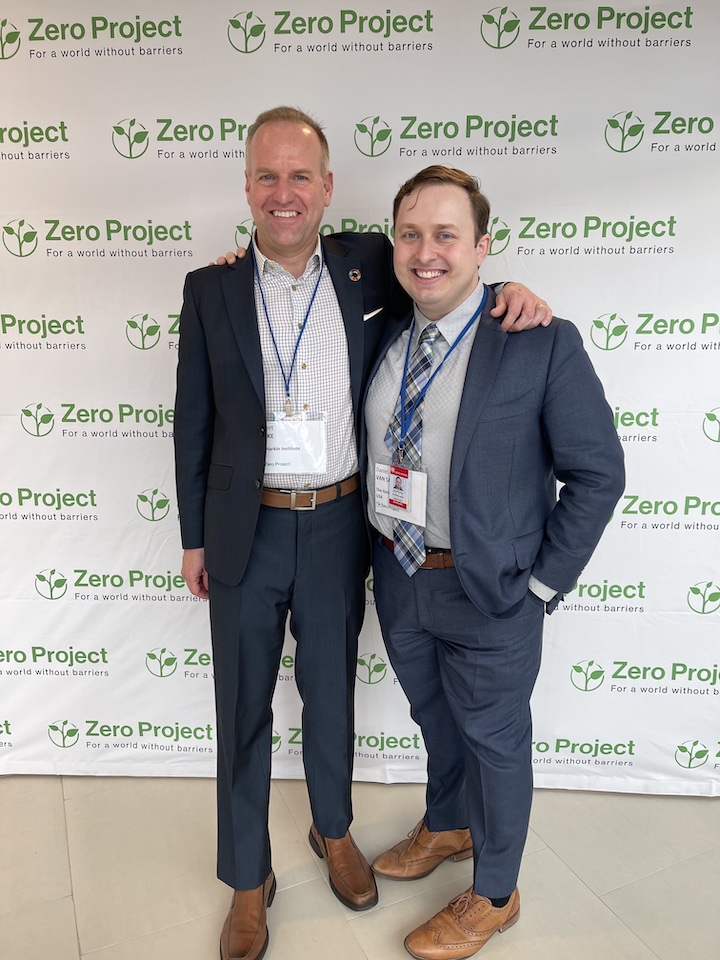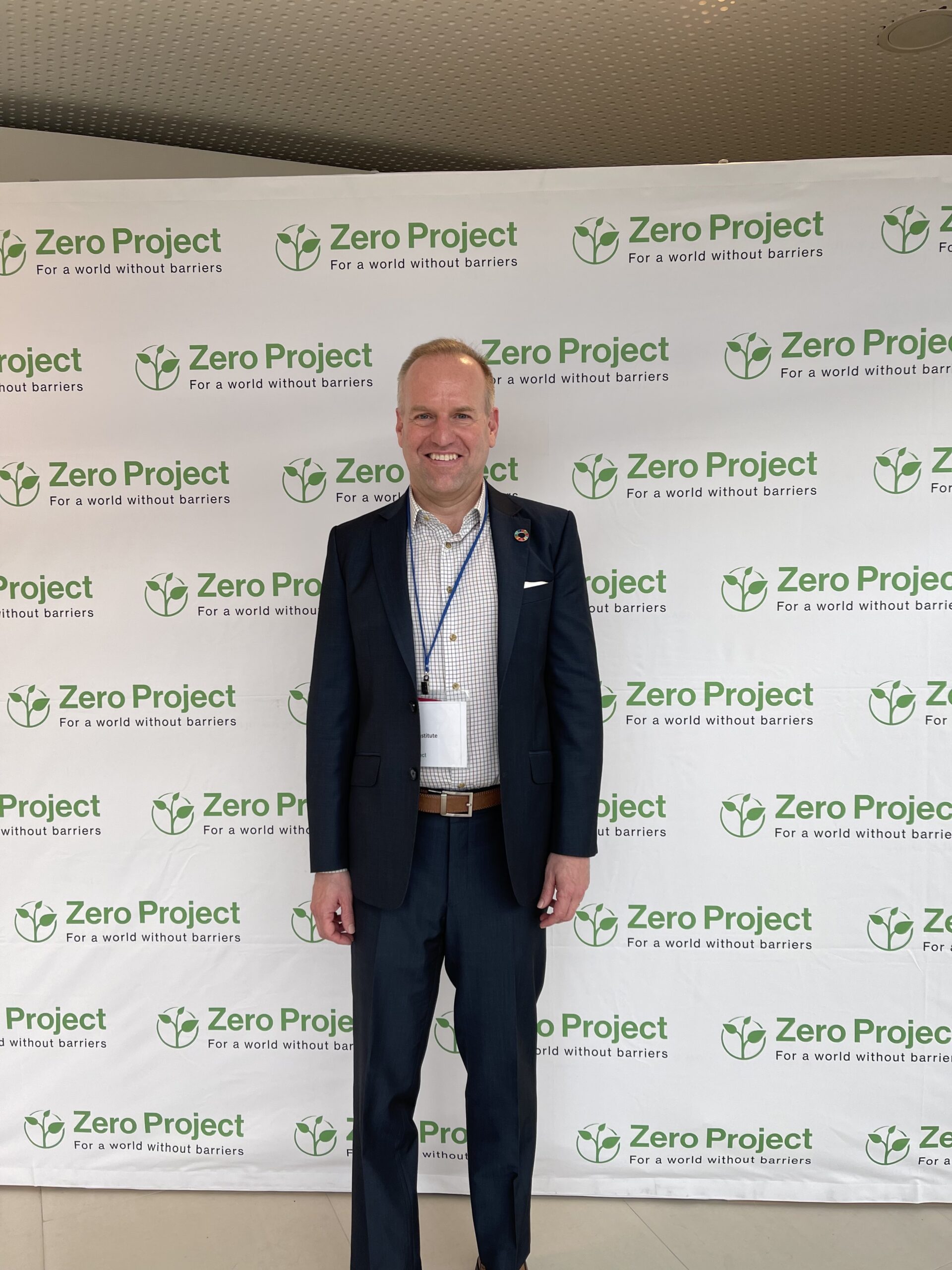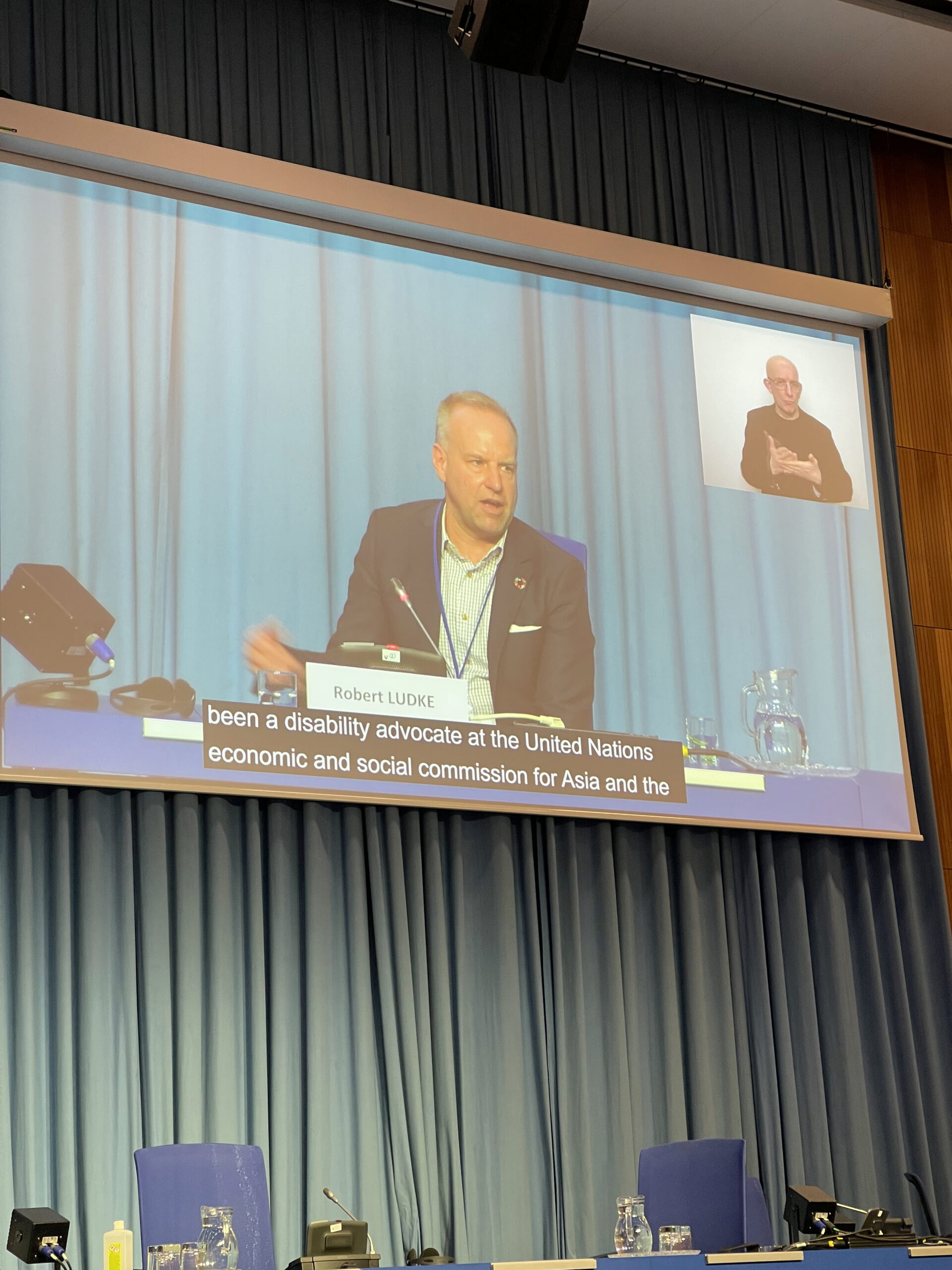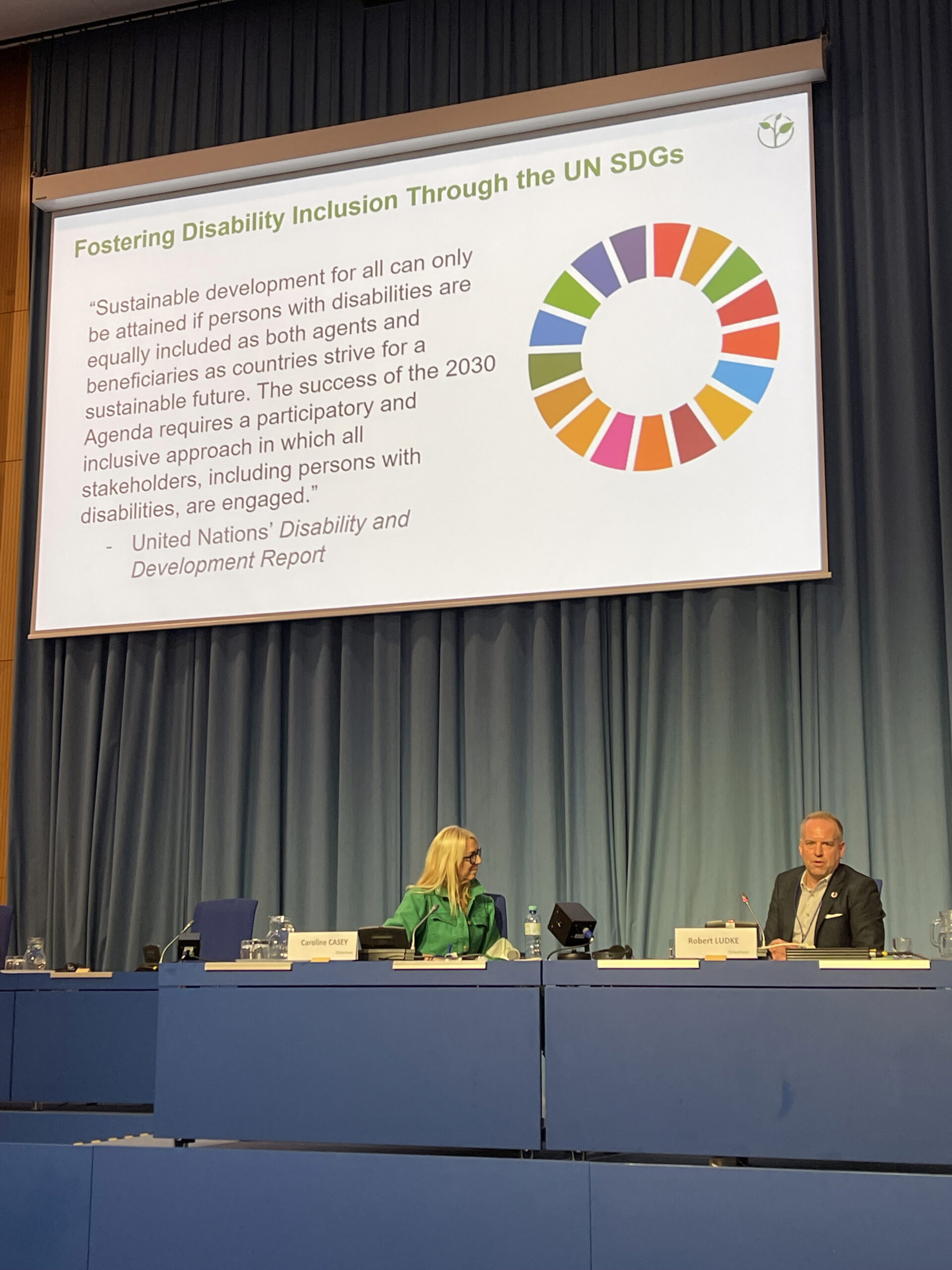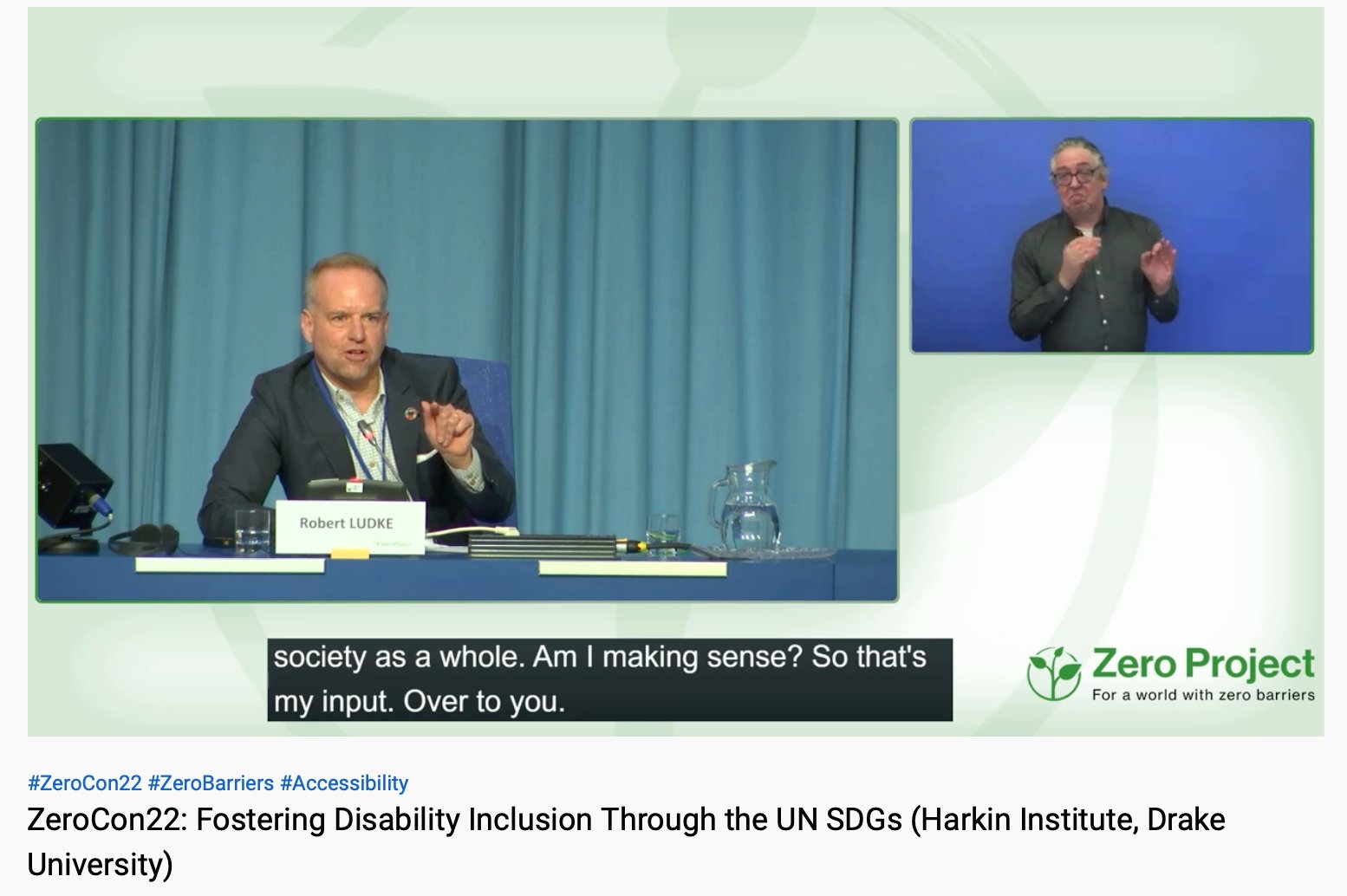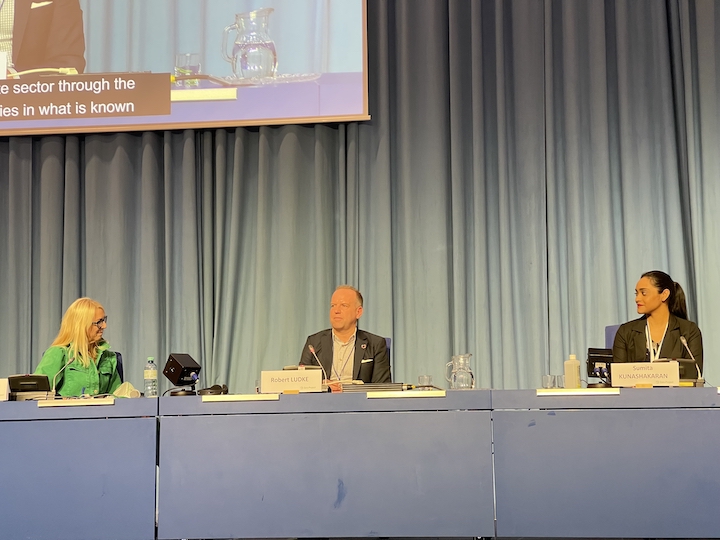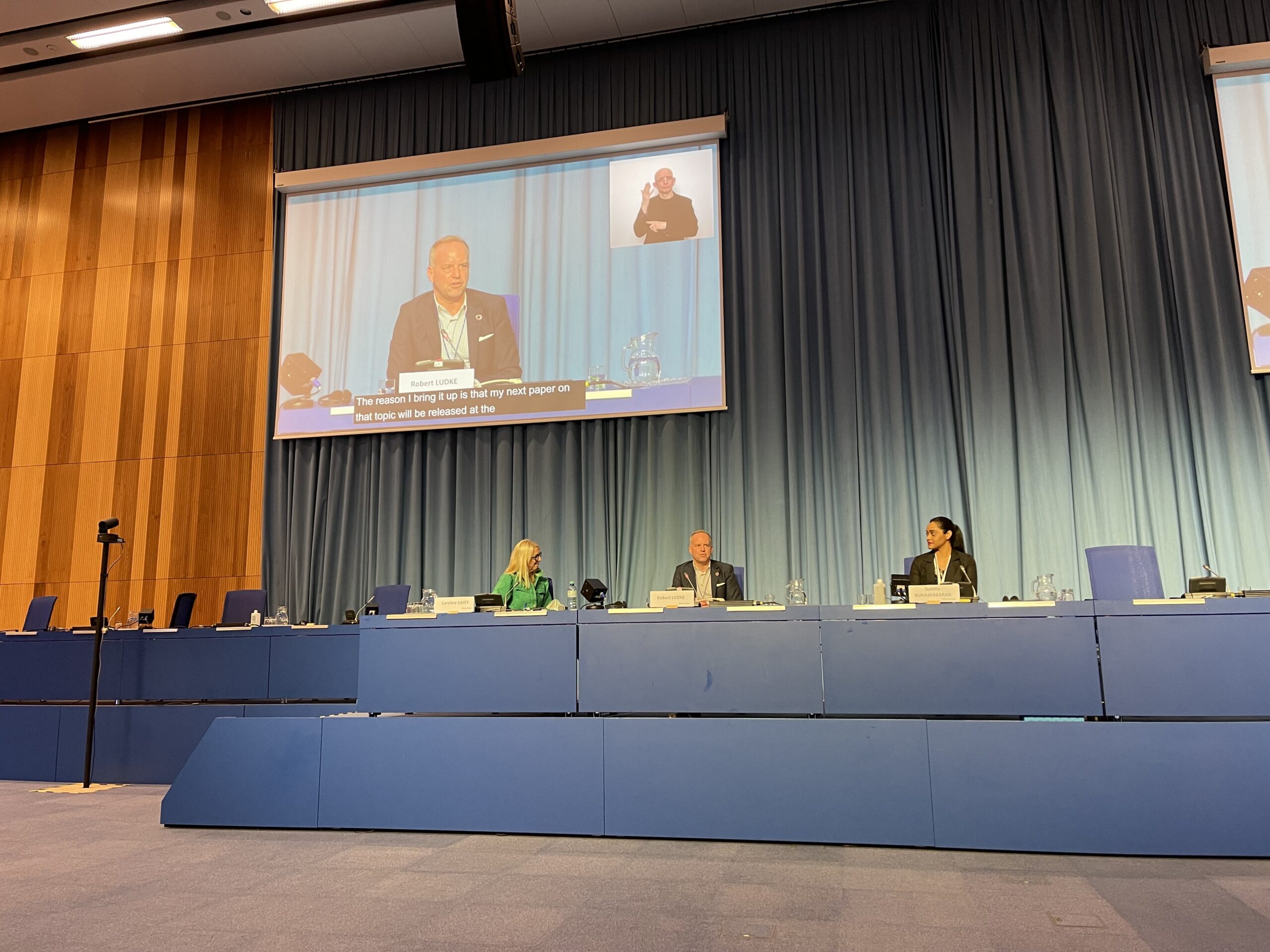Investing in Competitive Integrated Employment
Investors control an estimated $90 trillion worldwide. They have both the power and the influence to work with companies they invest in to fully integrate people with disabilities into all levels of their operations – from entry level to executive management.
By accelerating the vision of competitive, integrated employment for people with disabilities, the private sector will enjoy greater value creating opportunities – thereby benefiting investors, companies, persons with disabilities and society as a whole.
Robert Ludke on Double Take Podcast "Diversity and Human Capital"
Diversity and Human Capital: How are human capital management practices evolving, and what could these changes mean for investors?
View episode on the podcast website here.
Blog Post: What Investor Engagement on Disability Inclusion Looks Like
Public Comment Letters to the Securities and Exchange Commission
Skytop Article: Disability Inclusion: ESG Still Matters
Report: Competitive, Integrated Employment: A Driver of Long-Term Value Creation
A research paper released in conjunction with The 2022 Harkin International Disability Employment Summit shows that companies that make a commitment to competitive, integrated employment for persons with disabilities enjoy a competitive advantage and are positioned to capitalize on a $13 trillion global disability market.
The paper was written by Harkin Institute Senior Fellow Robert Ludke and is the latest publication in his ongoing work to explore the connection between disability inclusion and long-term value creation for shareholders, stakeholders, and society.
This research paper was a collaboration with Voya Cares, Voya Financial’s program that serves people with disabilities and their caregivers.
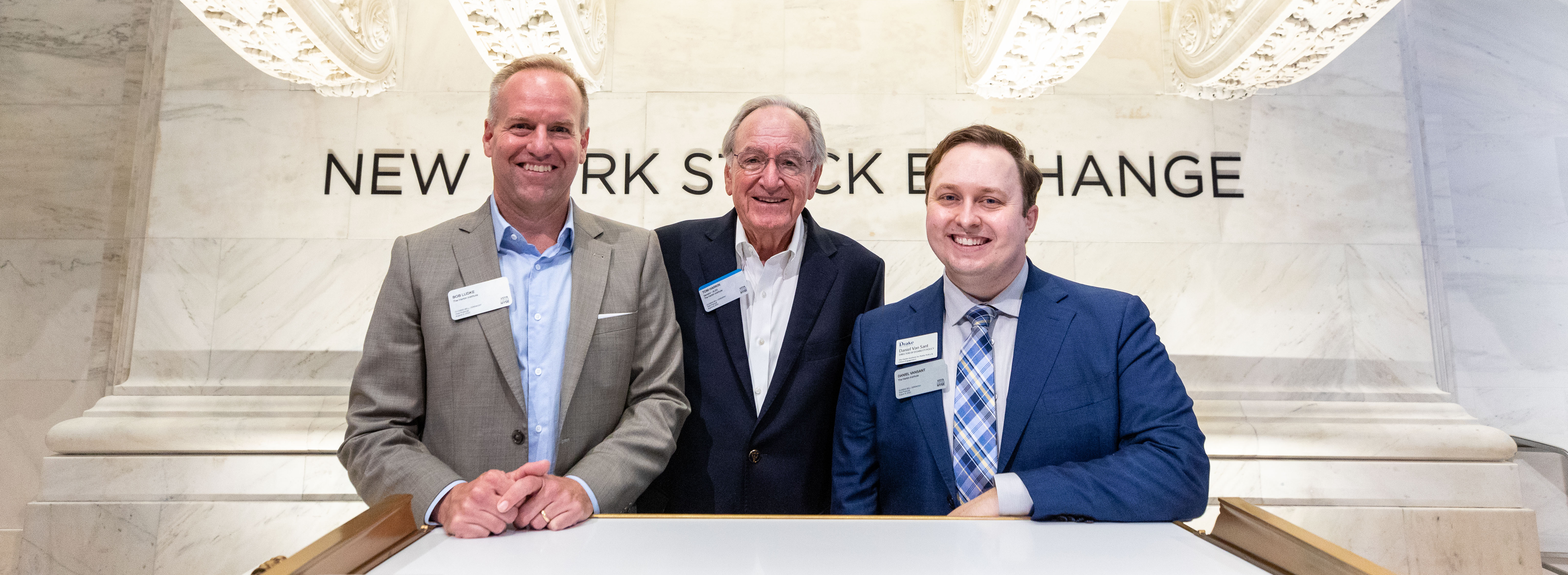
Solving “Then What?”
Empowering Investors to Achieve Competitive Integrated Employment for Persons with Disabilities
In December 2020 The Harkin Institute published a white paper that outlined a series of recommendations to foster greater collaboration between investors, the disability community, and the private sector to achieve competitive, integrated employment.
Fellow Ludke presents investor blueprint at Zero Project
Harkin Institute fellow Bob Ludke presented at the annual Zero Project Conference 2022 on February 23. Ludke joined a panel discussion, Fostering Disability Inclusion through the United Nations’ Sustainable Development Goals (SDGS).
The vision of the SDGs cannot be achieved without creating an inclusive society. The purpose of the panel discussion is to foster a better understanding of the intersection between disability and the SDGs while exploring the gaps and necessary areas of improvement so that the SDGs can fulfill their mission of creating an inclusive society.
Session Chairs included Aiko Akiyama of the UN Economic and Social Commission for Asia and the Pacific (UN ESCAP), Thailand and Robert Ludke of The Harkin Institute for Public Policy & Citizen Engagement, United States.
Speakers included:
- Aiko Akiyama, UN Economic and Social Commission for Asia and the Pacific (UN ESCAP), Thailand
- Robert Ludke, The Harkin Institute for Public Policy & Citizen Engagement, United States
- Daniela Bas, Director, Division for Inclusive Social Development, United Nations DESA, United States
- Caroline Casey, The Valuable 500, Ireland
Latest News

Senator Harkin and Robert Ludke publish column in Bloomberg
“It’s impossible for a company to consider its board of directors truly diverse and inclusive if people with disabilities are not acknowledged as able to provide expertise and insights that foster long-term value creation by companies — for investors and society alike.”
2020 Harkin Summit Panel Discussion: Spheres of Influence
This panel discussion led by Robert Ludke features a conversation about the role organizations across many industries can play in the efforts to increase employment opportunities for people with disabilities. The panel discussion took place as part of the 2020 Harkin International Disability Employment Summit.
Participants include:
- Christina Mallon, Wunderman Thompson
- KR Liu, Google
- Marianne Waite, The Valuable 500
- George Hagerty, Beacon College
- Regina (Gina) Kline, SmartJob, LLC
Disability Inclusion Dialogue Series
The first recommendation from the paper is to create a series of dialogues with experts with the outcome being a series of concrete, actionable recommendations to link disability inclusion with value creation – for investors and society alike.
Working in partnership with Global Goals Advisory and Goal 17 Partners, The Harkin Institute launched a seven-part dialogue throughout 2021 that brings together investors, leaders from the disability community, and private sector executives.
The dialogues will foster greater understanding of the challenges faced by persons with disabilities in the employment space while recognizing the value creating opportunity for the private sector when it achieves competitive, integrated employment. We will better understand how investors engage with companies in which they invest and identify areas of collaboration between the investor and disability communities to achieve employment outcomes.
Current policy initatives
New perspectives on ESG practices
There has been long-standing resistance in the United States to legislating how businesses should operate when it comes to their performance on environmental, social, and governance (ESG) practices.
However, that resistance is slowly crumbling. Consider:
- In August 2020, the Securities and Exchange Commission (SEC) finalized a rulemaking that will require companies to disclose how they are attracting, retaining, and investing in their employees.
- Members of Congress, led by Senator Mark Warner (D-VA) commissioned a Government Accountability Office report to look at the “quality and consistency of public companies’ ESG disclosure” and the usefulness of those disclosures to investors.
- The Biden Administration will be much more proactive in requiring companies to disclose information on their ESG practices.
The Missing Ingredient: Disability Inclusion
Missing in every one of the current policy efforts around ESG is the importance of disability inclusion. An organization cannot claim to be committed to ESG if it ignores the value created by people with disabilities.
Consider:
- According to the World Bank and the Global Economics Disability Report, over 1.3 billion people around the world experience some form of a disability – and they have a spending power of $8 trillion.
- Research by the Center for Talent Innovation found that 75% of employees with disabilities in the United States have ideas that would drive value for their company – compared with 61% of employees without disabilities.
- Research by the World Economic Forum shows that companies which are inclusive of people with disabilities are, on average, twice as likely to have higher total shareholder return than their peers, 28% higher revenue and 30% higher profit margins.
The Role of The Harkin Institute
The Harkin Institute is leading an effort to integrate disability inclusion into ESG policies through efforts such as:
- Convening experts in the disability and investor communities to find areas of collaboration.
- Working with experts and policy makers to improve awareness of the fact that competitive, integrated employment for persons with disabilities creates value for companies, investors, and society.
- Publishing thought leadership to demonstrate the business case for competitive, integrated employment.
ESG Criteria Defined
Environmental, social, and governance (ESG) criteria are a set of standards for a company’s operations that socially conscious investors use to identify investments that create value for society.
Currently $40 trillion in assets are managed under the ESG framework – more than the combined value of the economies of the U.S. and China.
Environmental: How a company performs as a steward of nature
Social: How a company manages relationships with employees, suppliers, customers, and the communities where it operates
Governance: How a company manages leadership, executive pay, audits, internal controls and shareholder rights
Read: The ESG Imperative of Disability Inclusion
Robert Ludke wrote a column about his findings for the Institute for PR. Read Ludke’s column.
Disability community expresses concerns about proposed Nasdaq rule on board diversity
Members of the disability advocacy community, including Harkin Institute Fellow Robert Ludke, have expressed concerns to the Securities and Exchange Commission that a proposed effort by Nasdaq to create greater diversity on corporate boards of directors excludes people with disabilities. Wrote Ludke, “It is impossible for a company to consider its board of directors truly diverse if people with disabilities are not acknowledged as able to provide expertise and insights that foster long-term value creation by companies – for investors and society alike…If Nasdaq is committed to diversity among corporate boards, its approach to diversity must be inclusive of all forms.”
Meet Harkin Institute Fellow Robert Ludke

Robert (Bob) Ludke’s passion is working with executives, innovators, and entrepreneurs creating long-term value for society. Over his career Bob has advised policymakers in the U.S. Senate and House of Representatives, taught at the United States International University in Nairobi, Kenya, and provided counsel on sustainability, CSR, and ESG strategies for companies in the retail, oil and gas, transportation, and finance industries. He is the author of Transformative Markets, a book about the role of markets in fostering a more sustainable and prosperous society (published in April through the Creator Institute of Georgetown University).
Bob had the honor of starting his career as an intern for Senator Harkin where he served on the Subcommittee for Disability Policy. A few years later, Bob returned to Senator Harkin’s staff as a legislative correspondent and legislative assistant.
Address: 2800 University Avenue, Des Moines, IA 50311
Phone: (515) 271-3623
Email: harkininstitute@drake.edu
Office Hours: Monday to Friday 9:00 a.m. to 4:00 p.m.

